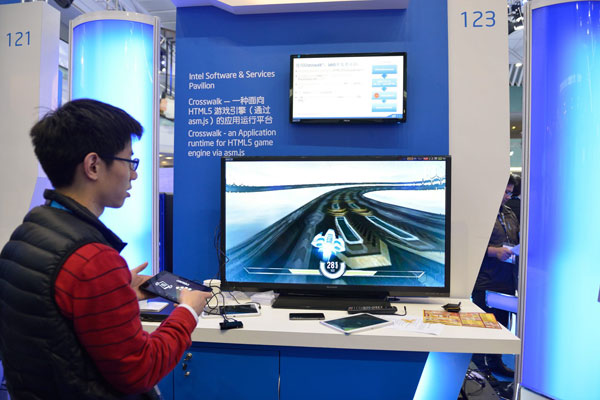|
 |
|
An employee displays how to remote control the game platform with a tablet computer at the 2014 Intel Developer Forum in Shenzhen, Guangdong province, in April last year.[Photo provided to China Daily] |
Antonio Wang, an analyst at consultancy International Data Corp, said a good relationship with the government is becoming critical for Intel and other overseas technology companies because of the "panic" over IT security.
Intel may have to cut loose some of its top research partners in China because of a new order from the US government. Supercomputer centers based in Guangdong province and Tianjin municipality and one at a military academy-the National University of Defense Technology in Hunan province-h(huán)ave been added to a US "Denial List" that bans advanced technologies from being sold to these organizations, US-based technology Website vrworld.com reported on Tuesday.
The report said the ban may damage sales of Intel's Xeon Phi accelerator because the institutes are making the world's fastest supercomputers and will need vast volumes of high-end Intel devices.
Multiple sources at Intel confirmed to China Daily that the US had blacklisted these customers, but they said it was unlikely to harm Xeon products' sales.
"The ban only covers research cooperation that may pose threats to the US. On-market product sales will not be affected," one of the sources said.
China and the US have stepped up information security in the past year, with both claiming to be victims of online espionage.
China is also seeking to ensure IT security by imposing new industry standards. Some foreign technology providers have said these moves are intended to oust foreign companies from the government procurement sector.
Chinese regulators have denied that accusation, saying that local companies must also abide by the regulations.
